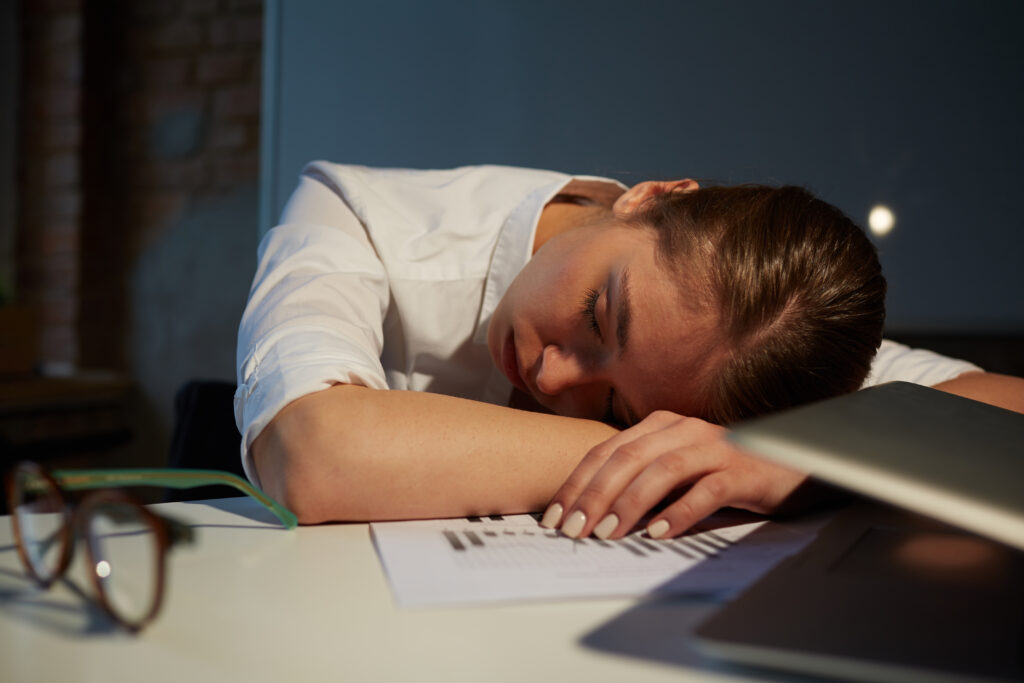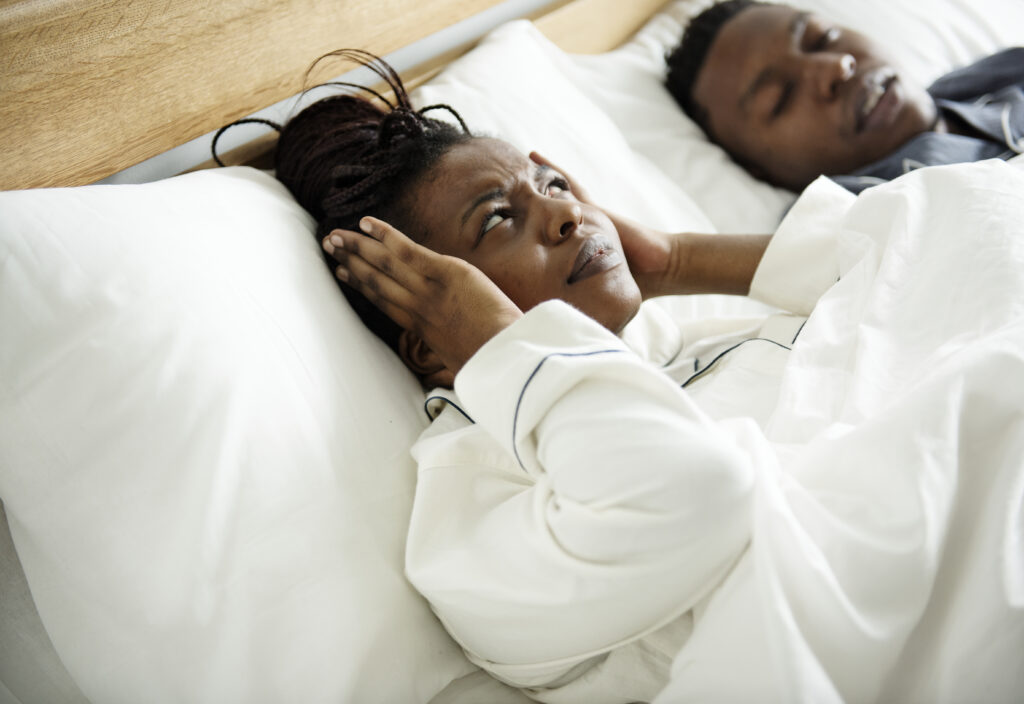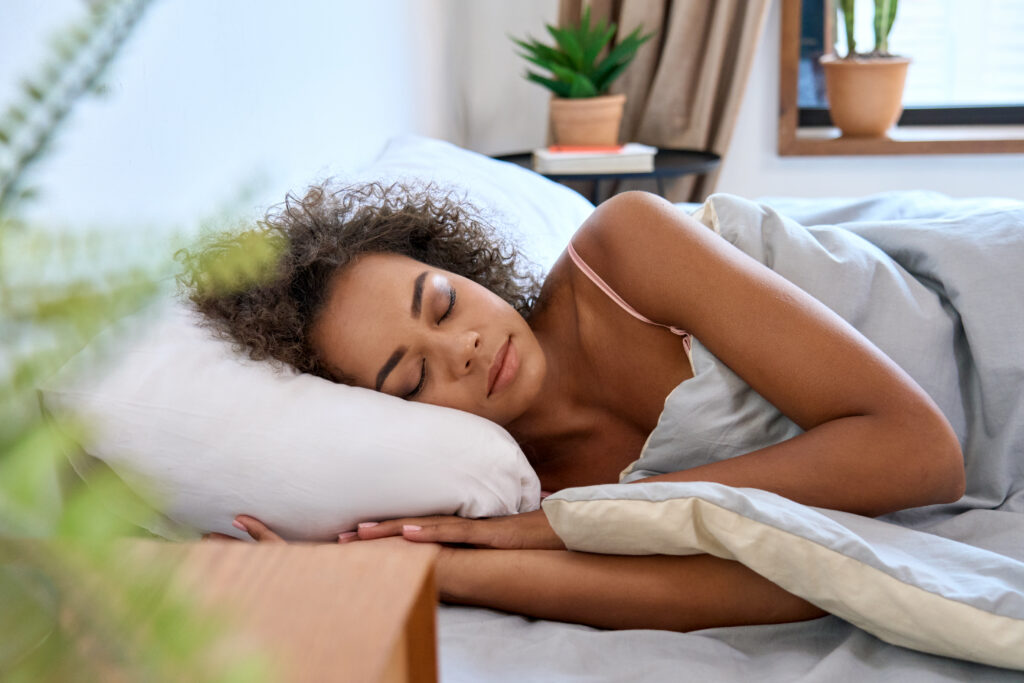Sleep Hygiene: Tips for Sleeping Better and Healthier
Apr 04, 2022
Getting a good night’s sleep is important in maintaining your health. There are several things you can do to promote good sleep and good sleep hygiene, ultimately leading to a better sleep routine through healthy sleep practices.
This article covers tips for sleeping better, sleep hygiene, sleep apnea, insomnia, finding a sleep specialist, and good sleep habits.
What is Sleep Hygiene
Ever wondered, what is sleep hygiene? Sleep hygiene is defined as behaviors that one can do to help promote good sleep using behavioral interventions. Paying attention to your sleep hygiene is one of the simplest ways that you can set yourself up for better sleep through good sleep habits.
Strong sleep hygiene means having both a bedroom environment and daily routines that promote consistent, uninterrupted sleep. Keeping a stable sleep schedule, making your bedroom comfortable and free of disruptions, following a relaxing pre-bed routine, and building healthy habits during the day can all contribute to ideal sleep hygiene and healthy sleep routines.
Signs of Bad Sleep Hygiene
Improving sleep hygiene has little to no cost and virtually no risk, making it an important part of your overall health strategy. Having a hard time falling asleep, experiencing frequent sleep disturbances, and suffering daytime sleepiness are the most telling signs of poor sleep hygiene. An overall lack of consistency in sleep quantity or quality can also be a symptom of poor sleep hygiene.
If you think you’re getting poor sleep, consider whether you possess any of these 3 tell-tale signs:
- You take more than 30 minutes to fall asleep after you get into bed.
- You regularly wake up more than once per night.
- You lie awake for more than 20 minutes when you wake up in the middle of the night.
If you are experiencing any of these sleep issues, you likely need to develop good sleep habits to get yourself into a better nighttime routine. If you are experiencing more severe sleep issues, you may be suffering from insomnia, sleep apnea, or other conditions that require help from a sleep specialist or sleep doctor.
Effects of Poor Sleep Habits
The effects of poor sleep hygiene can be felt in many ways during our daily lives, and are just as potent as other sleep disorders. This can include, but is not limited to:
- Low energy and overall tiredness
- Lack of motivation and drive to get things done
- Mood changes
- Poor decisions
- Memory problems
- Trouble concentrating
- Headaches

How to Improve Sleep Hygiene
Good sleep hygiene is all about putting yourself in the best position to sleep well each and every night.
Optimizing your sleep schedule, pre-bed routine, and daily routines is part of creating habits to make quality sleep feel more automatic. At the same time, creating a pleasant bedroom environment can be an invitation to relax and doze off.
A handful of tips for sleeping better can help in each of these areas. You can adapt these tips to fit your circumstances and create your own sleep hygiene checklist to help get the best sleep possible.
Setting Sleep Schedules
Having a set schedule normalizes sleep as an essential part of your day and gets your brain and body accustomed to getting the full amount of sleep that you need.
- Have a Fixed Wake-Up Time: Regardless of whether it’s a weekday or weekend, try to wake up at the same time since a fluctuating schedule keeps you from getting into a rhythm of consistent sleep.
- Prioritize Sleep: It might be tempting to skip sleep in order to work, study, socialize, or exercise, but it’s vital to treat sleep as a priority. Calculate a target bedtime based on your fixed wake-up time and do your best to be ready for bed around that time each night.
- Make Gradual Adjustments: If you want to shift your sleep times, don’t try to do it all at once because that can throw your schedule out of whack. Instead, make small, step-by-step adjustments of up to an hour or two so that you can get adjusted and settle into a new schedule.
- Don’t Overdo It With Naps: Naps can be a handy way to regain energy during the day, but they can throw off sleep at night. To avoid this, try to keep naps relatively short and limited to the early afternoon.
Create Sleep Routines
How you prepare for bed can determine how easily you’ll be able to fall asleep. A pre-sleep playbook including some of these tips for sleeping better can put you at ease and make it easier to get to fall asleep when you want to.
- Keep Your Routine Consistent: Following the same steps each night, including things like putting on your pajamas and brushing your teeth, can reinforce in your mind that it’s bedtime.
- Budget 30 Minutes For Winding Down: Take advantage of whatever puts you in a state of calm such as soft music, light stretching, reading, and/or relaxation exercises.
- Dim Your Lights: Try to keep away from bright lights at night because they can hinder the production of melatonin, a hormone that the body creates to facilitate sleep.
- Stay Cool: Being in a comfortable environment is essential for healthy sleep. Keeping your sleeping quarters at a temperature near 65°F, give or take a few degrees, is ideal.
- Unplug From Electronics: Build in a 30-60 minute pre-bed buffer time that is device-free. Cell phones, tablets, and laptops cause mental stimulation that is hard to shut off and also generates blue light that may decrease melatonin production.
- Test Methods of Relaxation: Instead of making falling asleep your goal, it’s often easier to focus on relaxation. Meditation, mindfulness, paced breathing, and other relaxation techniques can put you in the right mindset for bed.
- Don’t Toss and Turn: It helps to have a healthy mental connection between being in bed and actually being asleep. For that reason, if after 20 minutes you haven’t fallen asleep, get up and stretch, read, or do something else calming in low light before trying to fall asleep again.
Develop Healthy Habits
It’s not just bedtime habits that play a part in getting good sleep. Incorporating positive routines during the day can support your circadian rhythm and limit sleep disruptions.
- Get Daylight Exposure: Light, especially sunlight, is one of the key drivers of circadian rhythms that can encourage quality sleep. Build time in your day to go outside.
- Be Physically Active: Regular exercise can make it easier to sleep at night and also delivers a host of other health benefits. Simply taking walks around your neighborhood can help with healthy sleep.
- Don’t Smoke: Nicotine stimulates the body in ways that disrupt sleep, which helps explain why smoking is correlated with numerous sleeping problems like insomnia and sleep apnea.
- Reduce Alcohol Consumption: Alcohol may make it seem easier to fall asleep, but the effect wears off, disrupting sleep later in the night and causing dehydration. As a result, it’s best to moderate alcohol consumption and avoid it later in the evening. Drink water throughout the day instead.
- Cut Down on Caffeine in the Afternoon and Evening: Because it’s a stimulant, caffeine can keep you wired even when you want to rest, so try to avoid it later in the day. Also, be aware if you’re consuming lots of caffeine to try to make up for lack of sleep.
- Don’t Eat Late: Eating meals late, especially if it’s a big, heavy, or spicy meal, can mean you’re still digesting when it’s time for bed. In general, any food or snacks before bed should be on the lighter side and early enough in the evening that you aren’t still digesting when you hit the sheets.
- Restrict In-Bed Activity: To build a link in your mind between sleep and being in bed, it’s best to only use your bed only for sleep with sex being the one exception. This means avoiding eating in bed, watching TV, scrolling through social media, etc.
Improve Your Bedroom Environment
A central component of sleep hygiene beyond just habits is your sleep environment. To fall asleep more easily, you want your bedroom to be tranquil and relaxing. While what makes a bedroom inviting can vary from one person to the next, these tips may help make it calm and free of disruptions:
- Have a Comfortable Mattress and Pillow: Your sleeping surface is critical to comfort and pain-free sleep, so choose the best mattress and best pillow for your needs wisely.
- Use Excellent Bedding: The sheets and blankets are the first things you touch when you get into bed, so it’s beneficial to make sure they match your needs and preferences.
- Set a Cool Yet Comfortable Temperature: Fine-tune your bedroom temperature to suit your preferences. Keeping your sleeping quarters at a temperature near 65°F, give or take a few degrees, is considered to be ideal for healthy sleep.
- Block Out Light: Use heavy curtains or an eye mask to prevent light from interrupting your sleep.
- Drown Out Noise: Earplugs can stop noise from keeping you awake, and if you don’t find them comfortable, you can try a white noise machine or even a fan to drown out bothersome sounds.
- Try Calming Scents: Light smells, such as lavender, may induce a calmer state of mind and help cultivate a positive space for sleep.
What is Sleep Apnea?
Sleep apnea is a potentially serious sleep disorder in which breathing repeatedly stops and starts. If you snore loudly and feel tired even after a full night’s sleep, you might have sleep apnea. The main types of sleep apnea are:
- Obstructive sleep apnea: The more common form that occurs when throat muscles relax
- Central sleep apnea: This occurs when your brain doesn’t send proper signals to the muscles that control breathing
- Complex sleep apnea syndrome: Also known as treatment-emergent central sleep apnea, which occurs when someone has both obstructive sleep apnea and central sleep apnea
If you think you might have sleep apnea, see your doctor or health provider. Treatment can ease your symptoms and might help prevent heart problems and other complications.
Signs of Sleep Apnea
The signs and symptoms of obstructive and central sleep apnea overlap, sometimes making it difficult to determine which type you have. The most common signs and symptoms of obstructive and central sleep apneas include:
- Loud snoring
- Episodes in which you stop breathing during sleep — which would be reported by another person
- Gasping for air during sleep
- Awakening with a dry mouth
- Morning headache
- Difficulty staying asleep (insomnia)
- Excessive daytime sleepiness (hypersomnia)
- Difficulty paying attention while awake
- Irritability
What is Insomnia?
Insomnia is a common sleep disorder that can make it hard to fall asleep, hard to stay asleep, or cause you to wake up too early and not be able to get back to sleep. You may still feel tired when you wake up. Insomnia can not only drain your energy level and mood but also your health, work performance, and quality of life. How much sleep is enough varies from person to person, but most adults need seven to eight hours of sleep each night.
At some point, many adults experience short-term (acute) insomnia, which lasts for days or weeks. It’s usually the result of stress or a traumatic event. But some people have long-term (chronic) insomnia that lasts for a month or more. Insomnia may be the primary problem, or it may be associated with other medical conditions or medications.
Symptoms of Insomnia
- Difficulty falling asleep at night
- Waking up during the night
- Waking up too early
- Not feeling well-rested after a night’s sleep
- Daytime tiredness or sleepiness
- Irritability, depression or anxiety
- Difficulty paying attention, focusing on tasks or remembering
- Increased errors or accidents
- Ongoing worries about sleep
You don’t have to put up with sleepless nights. Simple changes in your daily habits and sleep hygiene can often help. If insomnia makes it hard for you to function during the day, see your doctor or health provider to identify the cause of your sleep problem and how it can be treated. If your doctor thinks you could have a sleep disorder, you might be referred to a sleep specialist.

Consult with a Sleep Specialist
The basic concept of sleep hygiene — that your environment and habits can be optimized for better sleep — applies to just about everyone, but what ideal sleep hygiene looks like can vary based on the person.
It’s also important to know that improving sleep hygiene won’t always resolve sleeping problems. People who have serious insomnia or sleep disorders like obstructive sleep apnea may benefit from better sleep hygiene, but other treatments are usually necessary as well.
If you aren’t getting the rest your body and mind need, there are solutions. Consulting with a sleep specialist will help in determining what is causing your sleep problems and provide solutions to get you on track for a good night’s sleep and give you a more productive life.
If you are looking for a sleep specialist in Wichita, HealthCore Clinic can help. Our integrated care approach to care means that our clients have convenient, affordable access to improve their whole health and wellness all under one roof. Our medical and behavioral health teams can work with you to develop a healthy sleep plan, good sleep hygiene, good sleep habits, and make referrals if you require a specialist for insomnia, sleep apnea, or other sleep disorders.
